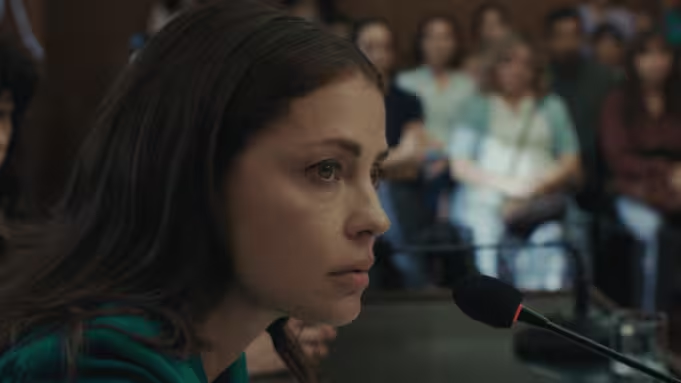8 Minutes
Argentina selects Belén as its Best International Feature contender
Argentina has officially chosen Dolores Fonzi’s powerful courtroom drama Belén as its submission for the Best International Feature Film category at the 98th Academy Awards. The selection spotlights a film that blends intimate human storytelling with urgent social questions — a natural fit for awards season and for audiences following global cinema that confronts contemporary rights issues.
Belén first drew international attention when it screened in competition at the San Sebastián Film Festival. Adapted from Ana Correa’s book Somos Belén, the film is co-written by Fonzi and her collaborator Laura Paredes, and produced by Leticia Cristi and Matías Mosteirin of K&S Films, with Diego Copello serving as executive producer.
The story at the center: law, stigma and a woman named Belén
Based on true events, Belén follows a young woman who arrives at a hospital with severe abdominal pain, unaware she is pregnant. She wakes up handcuffed to a gurney, accused of having self-induced an abortion. The plot tracks the crushing path from an emergency room to detention, and — after two years behind bars — an eight-year sentence for aggravated homicide. The film then follows the slow, intense fight for her freedom: a lawyer from Tucumán takes on her case and a grassroots movement of women and civil organizations rallies in support.
Dolores Fonzi appears onscreen in the cast alongside Camila Plaate, Laura Paredes, Julieta Cardinali and Sergio Prina, with notable appearances by Luis Machín and César Troncoso. The creative team deliberately centers Belén’s experience — the procedural details of her arrest, the courtroom dynamics, and the human cost of criminalization — so viewers can witness how law and social stigma intersect.

Belén in context: a trend in Latin American cinema
Belén arrives at a moment when Latin American filmmakers are increasingly tackling reproductive rights, gendered violence, and judicial injustice on screen. That trend includes narratives that move beyond courtroom drama to examine community response, activism, and the ripple effects of policy on everyday lives. In that sense, Belén resonates with earlier films that interrogated personal crisis under authoritarian or punitive systems.
When you place Belén next to films like Romania’s Four Months, Three Weeks and Two Days, which dramatizes the lengths women go to when abortion is criminalized, you see thematic parallels: bodily autonomy, secrecy, and the law’s heavy hand. But Belén is also distinct in its focus on organized social movements and legal advocacy, giving space not only to the suffering of the protagonist but to the networks that mobilize for change.
From page to screen: adaptation and performances
Adapting Somos Belén demanded sensitivity and factual care. Fonzi and Paredes’ screenplay keeps the source material’s immediacy while shaping scenes for cinematic tension — tight hospital sequences, claustrophobic detention scenes, and courtroom exchanges that reveal how language and testimony are used against women. The ensemble cast grounds these moments with understated, exacting performances; Fonzi’s own presence helps bridge the film’s dual role as both a political statement and an intimate character study.
Behind the scenes, the production benefited from a compact, focused crew. Producers Cristi and Mosteirin steered the project through festival strategy and international sales, helping position Belén for an awards push that begins with national selection and extends to festival circuits and global broadcasters.
Why Argentina chose Belén now
Argentina has a notable Oscar history: the country has previously won the Academy Award for Best Foreign Language Film with titles such as The Official Story and The Secret in Their Eyes. Choosing Belén signals Argentina’s continued interest in submitting films that fuse artistry with social relevance — stories that travel well internationally while speaking directly to national conversations about rights and justice.
Selecting Belén also reflects a strategic moment: films that engage human rights themes often resonate with Academy voters who appreciate politically conscious cinema told with cinematic craft. Belén’s festival pedigree and topical subject matter give it a profile that might attract both critics and socially minded viewers.
Comparisons and critical perspective
Critically, Belén may be compared to other legal and social-issue dramas that succeeded on the international stage by combining strong performances with meticulous production values. The film’s strengths lie in its attention to detail — medical procedures, legal mechanics, and activism logistics — and in the way it refuses to reduce the protagonist to a symbol. Yet some viewers may find its procedural focus brisk to the point of austerity; the film prioritizes the systems around Belén as much as her interior life.
Film critic Ana Kovacs, a noted commentator on Latin American cinema, offered this take: "Belén is a film of slow burn and fierce clarity. Its greatest achievement is refusing melodrama while insisting that what happens in courtrooms is a matter of life and community. Fonzi navigates the material with restraint and moral urgency."
Festival reaction and audience engagement
At San Sebastián, Belén was discussed alongside other competition entries for its topical courage and careful craft. Audience and critic reaction emphasized the film’s dual role as a narrative and as a catalyst for debate about the criminalization of abortion and the role of public advocacy. Community screenings, think-piece essays, and activist screenings often follow films like this, extending their cultural impact beyond the theater.
Belén’s selection is likely to prompt renewed discussion in international press, human rights networks, and film festivals focusing on social justice. For streaming platforms and distributors, the film’s combination of festival credibility and current affairs relevance can make it attractive for curated collections and themed releases.
Where Belén sits in Dolores Fonzi’s trajectory
Dolores Fonzi’s move into a writing and leading role in a film of this scope marks an important step in her creative career. Known primarily as an actor in Argentine cinema and television, Fonzi’s work on Belén positions her as a storyteller invested in stories that interrogate institutions and amplify marginalized voices. Whether or not Belén ultimately secures an Oscar nomination, the film strengthens Fonzi’s profile as an emergent filmmaker and demonstrates Argentine cinema’s appetite for projects that combine art with advocacy.
The film’s producers and cast will now steward the awards campaign, building on festival buzz and critical attention. Its journey will test how international audiences respond to films about domestic legal struggles, and whether a story rooted in a specific national context can generate broad empathy.
Belén is more than an awards hopeful; it’s a cinematic probe into the consequences of criminalizing reproductive decisions and a portrait of how communities mobilize in response. For viewers who follow social-issue cinema, or who track Argentina’s strong film tradition, Belén offers both a gripping narrative and an invitation to conversation.
Whether the Academy recognizes it with a nomination or a trophy, the film has already achieved something significant: it has turned a painful, real-life story into a piece of cinema that presses for understanding, accountability and change.
Source: deadline


Leave a Comment